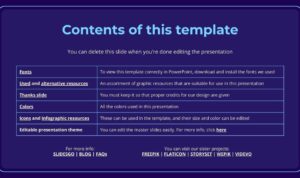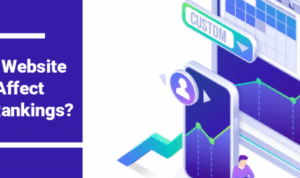The real estate industry has witnessed a monumental shift in the way properties are marketed and sold. In an age where potential buyers and renters turn to the internet for everything from initial property searches to virtual tours and mortgage pre-approvals, digital marketing has become the driving force behind successful real estate transactions.
Gone are the days when a “For Sale” sign on a lawn or a newspaper listing were enough. In 2025, real estate agents and agencies must embrace innovative digital marketing strategies to stand out in a crowded, competitive marketplace. Those who master these strategies are not only generating more leads but also closing deals faster and at higher prices.
In this comprehensive guide, we’ll explore the top digital marketing strategies that are transforming real estate sales and explain why each one is essential for modern real estate success.
1. Building a Strong Online Presence
Your digital marketing efforts must start with a strong online presence. Today’s buyers expect to find information about you — and the properties you sell — online. If you’re not easily found, you’re missing out on a huge audience.
Key Components:
-
Professional Website:
A sleek, easy-to-navigate website acts as your digital business card. Ensure it’s mobile-responsive, SEO-optimized, and showcases property listings with high-quality images, videos, and virtual tours. -
Search Engine Optimization (SEO):
Local SEO is especially crucial for real estate. Optimize for keywords like “homes for sale in [city]” to attract organic traffic. -
Google Business Profile:
A well-maintained Google Business Profile can boost local visibility and credibility.
Why It Matters:
First impressions now happen online. Your website and SEO strategies ensure you’re seen and trusted.
2. Leveraging High-Quality Visual Content
In real estate, visuals sell. Buyers form opinions about a property in seconds based on photos and videos.
Visual Content Strategies:
-
Professional Photography:
High-resolution images highlight the property’s best features. -
Drone Photography and Videography:
Aerial shots offer a unique perspective of larger properties or nearby amenities. -
Virtual Tours and 3D Walkthroughs:
Especially important for remote buyers, these allow full property exploration without visiting in person. -
Virtual Staging:
Showcases the potential of empty spaces by digitally furnishing them.
Why It Matters:
Buyers are more likely to engage with properties that offer rich, immersive visual experiences.
3. Email Marketing Campaigns
Email marketing remains a powerful tool for nurturing leads and keeping your audience informed.
Effective Email Strategies:
-
Automated Drip Campaigns:
Send a series of personalized emails to new leads, gradually guiding them toward a purchase. -
Newsletter Updates:
Keep subscribers engaged with new listings, market insights, and helpful tips. -
Follow-Up Emails:
Quick, thoughtful follow-ups can turn inquiries into serious buyers.
Why It Matters:
Email marketing keeps you top-of-mind for potential buyers throughout their decision-making journey.
4. Social Media Marketing
Social media platforms have evolved into essential real estate marketing tools.
Key Platforms:
-
Facebook:
Targeted ads, business pages, and Facebook Marketplace listings. -
Instagram:
Perfect for showcasing stunning property visuals and “behind the scenes” content through Stories and Reels. -
TikTok:
Growing rapidly in real estate marketing, TikTok allows agents to create fun, engaging property tours and tips. -
LinkedIn:
Great for connecting with other real estate professionals, developers, and high-net-worth individuals.
Best Practices:
-
Post consistently.
-
Use video content heavily.
-
Engage with comments and direct messages.
Why It Matters:
Social media allows agents to build relationships, promote listings, and expand their reach organically and through paid ads.
5. Paid Advertising (PPC and Social Ads)
Paid advertising can deliver immediate traffic and leads, particularly when organic efforts are still building momentum.
Effective Paid Strategies:
-
Google Ads (PPC):
Appear at the top of search results for property-related queries. -
Facebook and Instagram Ads:
Highly targeted ads based on demographics, interests, and behaviors. -
Retargeting Ads:
Re-engage visitors who checked out your site but didn’t take action.
Why It Matters:
Paid advertising ensures you capture attention quickly and reach highly specific audiences.
6. Content Marketing and Blogging
High-quality content builds trust, authority, and SEO rankings.
Content Ideas:
-
Buying and Selling Guides:
Help your audience understand complex real estate processes. -
Neighborhood Spotlights:
Showcase local amenities, schools, attractions, and lifestyle features. -
Market Updates and Insights:
Establish yourself as a local market expert.
Why It Matters:
Providing value through content nurtures relationships and drives long-term organic traffic to your website.
7. Video Marketing
Video is no longer optional — it’s mandatory for effective digital marketing.
Video Strategies:
-
Property Tours:
Walk potential buyers through properties visually. -
Agent Introduction Videos:
Build trust by putting a face to your name. -
Client Testimonial Videos:
Social proof is a powerful motivator for new clients.
Why It Matters:
Video marketing increases engagement, trust, and conversions.
8. Using Big Data and Predictive Analytics
Technology now allows real estate agents to use data to predict buyer behavior and market trends.
Key Tools:
-
CRM Software:
Track lead interactions and behaviors for smarter follow-ups. -
AI Tools:
Predict which leads are most likely to convert based on past actions. -
Market Analysis Platforms:
Tools like Zillow Premier Agent Insights and Redfin provide real-time data on market conditions.
Why It Matters:
Better data leads to smarter, more effective marketing and sales strategies.
9. Implementing Chatbots and AI Communication
Immediate communication is vital in real estate.
Chatbot Advantages:
-
Instant Responses:
Engage visitors at all hours without needing a human to monitor the website 24/7. -
Lead Qualification:
Quickly gather essential information from potential buyers and sellers. -
Appointment Scheduling:
Let users book property showings directly through the bot.
Why It Matters:
Faster response times mean more captured leads and better customer satisfaction.
10. Online Reputation Management
Your online reputation can make or break your real estate career.
Reputation Management Tips:
-
Encourage Happy Clients to Leave Reviews:
Focus on platforms like Google, Zillow, and Yelp. -
Monitor and Respond to Reviews:
Thank positive reviewers and professionally address negative feedback. -
Social Proof on Your Website:
Showcase testimonials and success stories prominently.
Why It Matters:
Trust is critical in real estate — a strong online reputation builds instant credibility.
Conclusion
The digital landscape for real estate marketing is evolving faster than ever. Buyers are tech-savvy, research-driven, and expect instant, immersive experiences before they even consider stepping inside a property.
By implementing these digital marketing strategies — from powerful visual content and email nurturing to social media marketing, paid ads, and big data insights — real estate professionals can position themselves at the forefront of the industry transformation.
Adaptation is no longer optional; it’s the key to thriving in a highly competitive marketplace. Those who embrace these strategies today will be tomorrow’s market leaders, consistently closing more deals and achieving higher client satisfaction.
In the end, the best digital marketing strategies don’t just sell homes; they build lifelong relationships and reputations.













